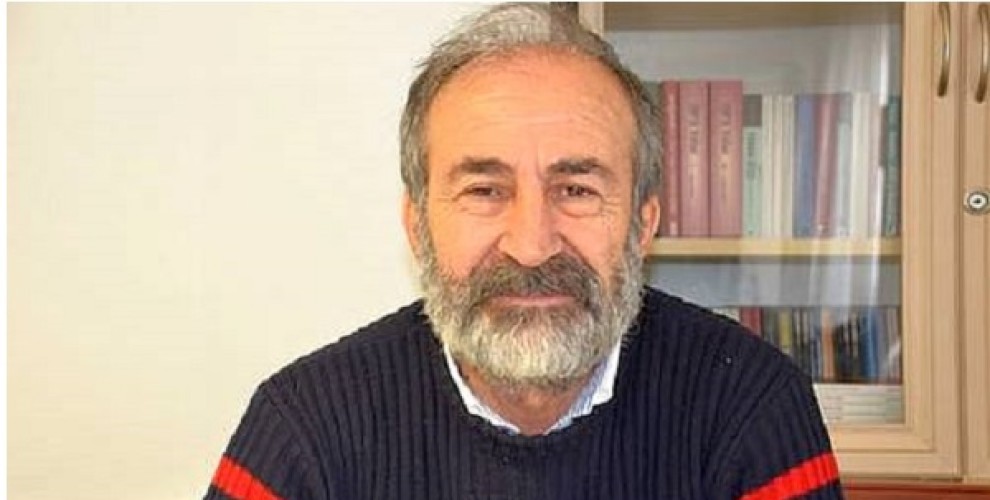Human rights defender Öndül: “Turkey respects no laws”
Human rights defender Öndül stated that the Turkish government is denying both domestic and binding international law with their practices against pro-peace people.
Human rights defender Öndül stated that the Turkish government is denying both domestic and binding international law with their practices against pro-peace people.

Human rights defender Lawyer Hüsnü Öndül stated that there will be international sanctions dispersed through time against the pressure Turkey puts on people against war and people who defend peace.
As the Turkish state’s invasion attempt against Afrin continues, the protests also continue to develop over various media. These protests are based on the anti-war movement, and are attempted to be suppressed through detentions and arrests. The raiding of the homes of people who shared Afrin-related posts on social media in particular has been the discussion that has garnered the most reaction recently. We asked lawyer and human rights defender Hüsnü Öndül what responsibilities and duties domestic and international law have in Turkey, where there is a political and legal erosion where even a generic anti-war stanceis punishable.
PROPAGANDA FOR WAR IS FORBIDDEN
Öndül said the people expressing their opinions that are anti-war being detained or arrested goes against both domestic and transnational human rights law and pointed out that the purpose of the United Nations (UN) was to create world peace. Öndül continued:
- The first article of the founding laws of the UN foresees ensuring peace. The first fundamental goal is peace.
- Secondly, there are explanations in the opening of the Universal Declaration of Human Rights about the evils of war and what needs to be done to prevent wars.
- Thirdly, according to Article 90 of the Constitution enacted in 1966 and approved in 2003, Article 20 of the United Nations International Covenant on Civil and Political Rights forbids propaganda for war and hostility.
Öndül stressed that as such, it is a humanitarian duty for the people on Earth and various groups in various countries to defend peace, and added that this can’t be banned with any law.
AN ATTACK ON HUMAN DIGNITY
Öndül said the prohibition of defending peace is an attack against human dignity and such an attack is unacceptable: “According to my assessment, it is a great crime to launch investigations for people saying ‘I don’t want war, I am pro-peace’. They only want a single viewpoint in Turkey now, they want society to never look at any issues in a critical light. That is why they try to suppress dissenting ideas with threats of detentions, arrests and trials.
THE POWER OF THE STATE, NOT THE LAW
Öndül also spoke about the Turkish state officials labelling the people opposing the invasion in Afrin as “traitors to the fatherland” and said: “This accusation has no basis in neither the Turkish constitution nor international law. There is no foundation in penal law that require the anti-war people, pro-peace circles to be put through any legal processing. They are using the power of the state, not the law at all, to deprive people of their freedom based on arbitrary interpretations. Practices like detentions and arrests stem from this arbitrariness. They are not based in law.”
IN THE TOP 3 FOR RIGHTS VIOLATIONS
Hüsnü Öndül said the world order foresees each country taking precautions to protect human rights and freedoms, that there are regional agreements like the American Convention, European Convention of Human Rights, African Charter on Human and Peoples’ Rights, and there are further domestic arrangements in each country in constitutions and laws to protect/implement human rights and freedoms: “Turkey has been a member of the Council of Europe since 1950, and a party to the European Convention of Human Rights since March 1954. Turkey has been a party to this convention for 64 years, but at the same time it is the country with most violation verdicts in the European Court of Human Rights (ECHR) in freedom of expression and just trial. The country is also listed third in terms of number of applications to the ECHR. The Council of Europe has 47 members, and Turkey is the top third member in terms of violations.”
SANCTIONS DISPERSED OVER TIME
Human rights defender Hüsnü Öndül stressed that there are sanctions against these arbitrary practices and continued: “International institutions like the ECHR and the Council of Europe take years and years in rectifying the violations. Thus, it can be said that there are great weaknesses in the world and regional orders in terms of protecting human rights. When there are systematic violations in a country, for instance following the September 12 coup in Turkey, Turkey’s membership to the Council of Europe was suspended and only continued as a regular member after 2004. Of course before this there was the period of reinstation and monitoring. So there are sanctions in place, but they are not effective. They don’t create an impact in the short term. These are precautions that are dispersed over a long period of time.”